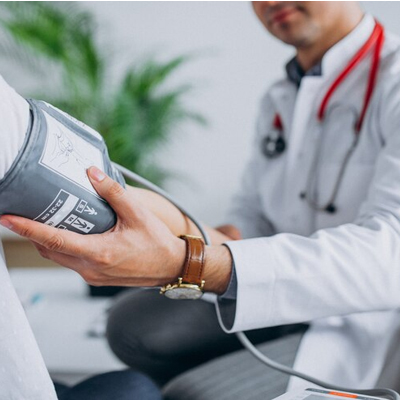Amidst India's healthcare disparities, diagnostics stands as a beacon of hope, bridging the gap between urban privilege and rural deprivation. With only 35.8% of rural households having access to healthcare within a 5 km radius, diagnostics emerges as a transformative solution.
Advancements in technology and the integration of telemedicine have decentralized healthcare, reaching remote communities and empowering patients with timely interventions. Government initiatives and public-private partnerships further propel the expansion of diagnostic services, paving the way for a healthier and more equitable India.

In the vast and diverse landscape of India, healthcare inequalities persist as a formidable challenge, underscoring the disparities between urban privilege and rural deprivation. The prevalence of inadequate healthcare infrastructure in rural areas, coupled with financial constraints and geographical barriers, exacerbates the divide, leaving millions underserved and vulnerable. According to the National Family Health Survey (NFHS) 2019-20, only 35.8% of rural households have access to healthcare facilities within a 5 km radius, compared to 61.9% in urban areas. Additionally, financial constraints force millions of Indians to forgo essential healthcare services, with out-of-pocket expenditures accounting for over 62% of total healthcare spending. However, amidst these challenges, diagnostics emerges as a beacon of hope, offering a transformative solution to bridge the gap in healthcare access across the nation.
The Role of Diagnostics in Improving Access to Care
Amidst the challenges of healthcare disparities, diagnostics emerges as a powerful tool to democratize access to essential healthcare services. With advancements in technology and the advent of point-of-care testing (POCT) devices, diagnostic services are becoming increasingly decentralized, reaching remote and marginalized communities. Mobile diagnostic vans equipped with state-of-the-art equipment now traverse the hinterlands, offering comprehensive screening and diagnostic services at the doorstep of those in need.
Telemedicine and Digital Health Platforms
The integration of telemedicine and digital health platforms has revolutionized healthcare delivery, particularly in remote and underserved areas. According to recent data from the Ministry of Health and Family Welfare, the number of diagnostic laboratories and imaging centers in rural areas has increased by 25% over the past five years, reflecting a concerted effort to address the gaps in healthcare infrastructure. Furthermore, the prevalence of telemedicine and digital health platforms has expanded rapidly, with over 60% of primary healthcare centers now equipped with telemedicine facilities.
Through telemedicine initiatives, patients can now access remote consultations and diagnostic support, breaking down geographical barriers and facilitating timely intervention. This paradigm shift in healthcare delivery has the potential to revolutionize access to care, empowering patients with the knowledge and resources to take charge of their health.
Government Initiatives and Public-Private Partnerships
Government-led initiatives aimed at promoting universal healthcare coverage and strengthening primary healthcare infrastructure have spurred the expansion of diagnostic services in rural and underserved regions. Public-private partnerships have been instrumental in establishing diagnostic laboratories and imaging centers, ensuring equitable access to essential diagnostic tests for all segments of society. By leveraging the synergies between the public and private sectors, India is poised to make significant strides in addressing healthcare disparities.
The Impact Beyond Diagnosis
The impact of diagnostics extends far beyond mere diagnosis, encompassing disease surveillance, preventive screenings, and health monitoring programs. By facilitating early detection of diseases such as tuberculosis, HIV/AIDS, and non-communicable diseases, diagnostics not only saves lives but also reduces the burden on the healthcare system by averting costly complications and hospitalizations. Furthermore, the proactive approach to healthcare enabled by diagnostics promotes a culture of prevention and wellness, laying the foundation for healthier communities. For example CORE Diagnostics is focusing on building regional language based digital diagnostics platforms and partnering with the govt of India for their initiatives.
In the journey towards universal health coverage and equitable healthcare access, diagnostics emerges as a cornerstone, offering a pathway to a brighter and healthier future for all. By leveraging technology, innovation, and strategic partnerships, diagnostics has the power to transform healthcare delivery, making quality diagnostics accessible and affordable to even the most marginalized communities. As we navigate the path ahead, let us harness the potential of diagnostics to realize the vision of a healthier and more equitable India.